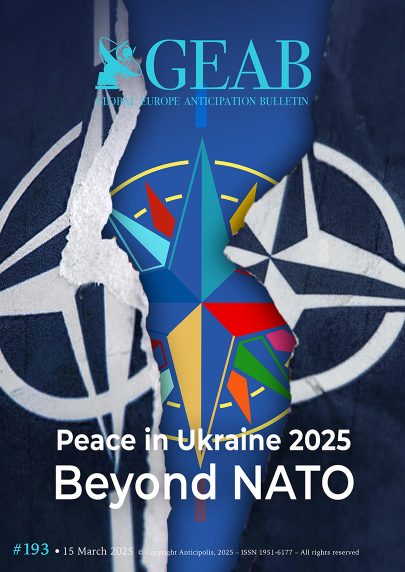GEAB 193
The return to reality of our systems, analysed and anticipated by the GEAB for several years now, is now preparing to conquer the innovation sector.
With artificial intelligence occupying everyone’s minds and dominating the media since the publication of ChatGPT by OpenAI at the end of 2022, you’d think we were in for another round of technological progress worthy of a science fiction film. But that was just an aside. Yes, AI will play a decisive role in our societies in the future, but its progress will slow down soon[1], and above all, it will have to become a reality, which will be less impressive than your first conversation with ChatGPT but will have a more significant impact on your daily life[2].
And it will be a first reality check that will have a major impact on the companies that benefited from the financial bubble, first and foremost Nvidia[3].
The second aspect of this reality check concerns innovations that are much more down-to-earth, and which will enable progress to be made in more ‘traditional’ sectors of industry, with equally spectacular gains in productivity.
Innovation at the service of harsh reality
China is the perfect embodiment of both aspects of innovation’s return to reality. It has demonstrated this in recent months by mastering a new steelmaking method[4]. This method involves injecting finely ground iron ore powder into an extremely hot furnace, triggering an “explosive chemical reaction”, according to the engineers involved in the project[5].
The revolutionary aspect is the time and material saved. In fact, it is said to be capable of carrying out the steelmaking process in 3 to 6 seconds, compared with 5 to 6 hours for the conventional method, which is 3,600 times more productive[6].
What’s more, it works exceptionally well for low- and medium-yield ores, which are abundant in China, whereas current iron production methods rely heavily on high-yield ores, which China imports massively from Australia, Brazil and Africa. Finally, it would completely eliminate the use of coal in steel production, reducing the industry’s environmental impact and carbon footprint.
Login

History has shown that even the most devastating wars sometimes lead to defining moments—when great treaties are signed, altering the course of the world. These agreements remain in history books [...]
We anticipate that, in a few weeks' time (sooner than we might think), a peace agreement will be signed between Russia and Ukraine, under American guidance, known as the Treaty [...]
This fiction, edited by Christopher H. Cordey assisted by AI, depicts an imaginary conversation between theorists of two worldviews clashing in the Russian-Ukrainian conflict: American hegemonism on the one hand [...]
Public International Law (PIL) is on the brink of a forced revolution. This revolution, of which Trump will be the catalyst, is based on the inadequacies of the current system. [...]
In a world where the future is unfolding at breakneck speed, the GEAB is inaugurating a new section, Terra Cognita 2089, to refine its short- and medium-term forecasts and continue [...]
Water... let there be soil! In 2019, Saudi Arabia's proven oil reserves were estimated at 263.1 billion barrels. At the rate of production at the time, this was equivalent to [...]
Market Uncertainty - how smart money survives and thrives 2025 is shaping up to be a year of economic turbulence, with volatility defining global markets. Growth is sluggish, inflation is [...]
Nearly a hundred of you once again chose to respond to the February questionnaire. What stands out is that the question required nuance, as only a third of you identified [...]

Comments